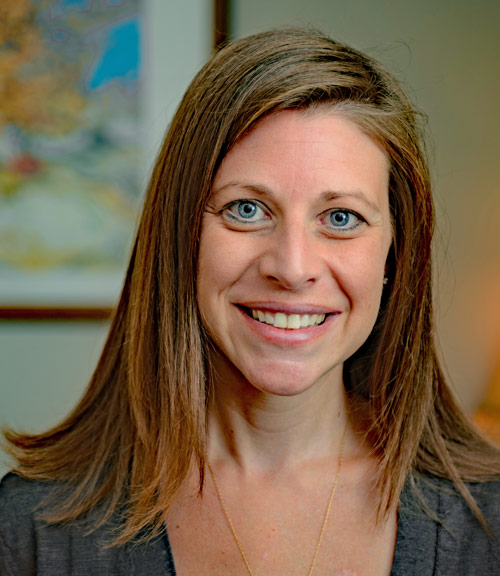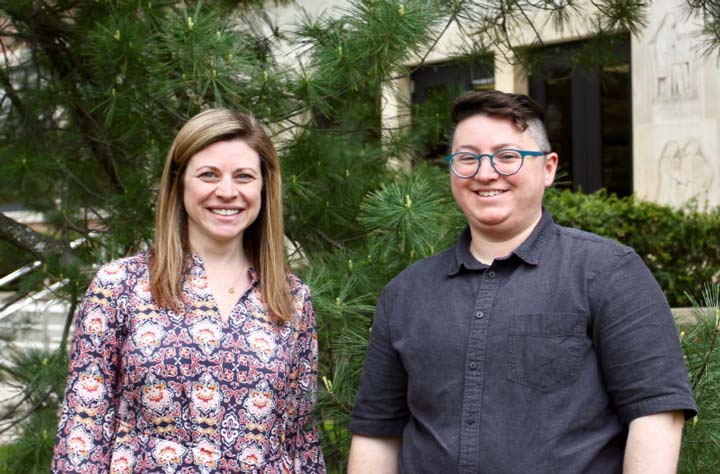Clinic News and Awards

Dr. Natalie Moser was featured on MSUToday's 'Ask the Expert'
Ask the Expert: Helping K-12 students transition from at-home to in-person learning
As summer comes to end, the K-12 school year is right around the corner. For many young students in Michigan, this will be their first time in a classroom after 18 months of remote learning. Given the uncertainties surrounding the COVID-19 pandemic, it's natural for kids to feel anxious about going back to school in the midst of a pandemic.
Dr. Natalie Moser is the director of the MSU Psychological Clinic and the Gerson Mental Health Initiative at Michigan State University. An expert on pediatric psychology and child anxiety, Dr. Moser shares several ways families and educators can help ease the transition from at-home to in-school learning for their children.
Why are some students feeling anxious about going back to school this year?
It makes sense for students to experience anxiety as they return to school this year, as some have not even been in a school building for over a year. Some examples of these anxieties may include: increased social anxiety (worry about being around others, being in crowds, speaking in front of others, eating in front of others, and overall being evaluated by others); separation anxiety (fear of being away from parents/families/caregivers); and COVID-related worries (fear of getting sick, fear of bringing something home to a loved one).
For some kids, some of this worry may naturally decline as the school-year starts and they begin engaging in the activities that initially made them anxious. For others, however, the fear and worry may persist. It will be important for families and teachers to help students find in-the-moment ways to manage anxiety, such as mindfulness practices, breathing exercises or journaling.
What are some ways that COVID-concious students can feel safer in their classes - especially in schools where masking and social distancing is not required?
It is also important to find ways for students to feel more comfortable with their school's COVID-related safety protocols - or lack thereof. If your student is attending a school that does not have a mask requirement, and they plan to mask, they may feel uncomfortable or self-conscious. It may help students to have a pre-planned statement they can say to others if their mask-wearing is questioned (e.g.,"I'm wearing a mask for the safety of my family").
It may also help to request a particular classroom seat, perhaps slightly more distanced than others or in a location that is not as central. There may be other accommodations that a student who is feeling particularly overwhelmed by Covid-related anxiety may consider, such as eating outside of the lunchroom or taking breaks from class if their anxiety becomes overwhelming.
How can students overcome social anxiety and feel confident interacting with their peers after a year and a half of remote learning?
If your student has not had the opportunity to see friends yet, it may help to meet up with some friends before school starts, even if briefly. “Breaking the ice” with some in-person interaction can help demonstrate that they still know how to interact with friends in person. Additionally, it can be comforting to have a few friends they can count on, as familiar faces will make the transition back a little easier.
Once school starts, students still feeling socially anxious can challenge themselves to one small goal per day, such as raising their hand in class, saying hello to an old friend, or signing up for a new activity/club. Writing down a list and checking off items as they go may help.
Finally, what are some signs that teachers can look for to indicate that a student is struggling with their mental health?
Teachers can look out for withdrawn behavior (students who are not engaging with others, putting their heads on their desks, or not doing classwork). Teachers may also observe panic symptoms, or students who experience physiological effects of anxiety (e,g. fast breathing, feelings of numbness/tingling, or shaking).
This will be an important year to consider that behaviors such as appearing distracted, not completing work, not participating in class or lack of attendance may very well be related to anxiety and/or depression and should not be interpreted as a simple refusal to engage in school.
- Liz Schondelmayer

SSCP Varda Shoham Clinical Scientist Training Initiative Grant
Drs. Jae Puckett and Natalie Moser were recently awarded this grant for their submission "Implementation of the Sexual and Gender Minority Clinic at the MSU Psychological Clinic: Applying Clinical Science Values to Train Students and Provide Best Practices to the Sexual and Gender Minority Community". Congratulations!

